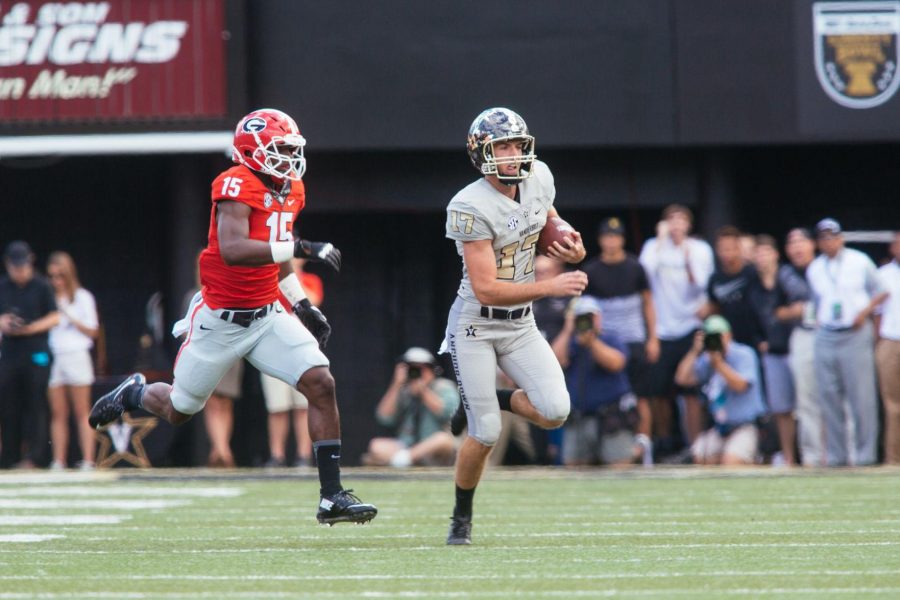The Vanderbilt Commodores are 3-0 in the SEC so far this season, having won 28-6, 42-0, and 14-7. There is one odd thing about those three numbers, however. See it? Not yet? Let me give you a hint. Each of the Commodores’ final scores is divisible by seven. Vanderbilt has scored an impressive total of 84 points, all from touchdowns. They have kicked a grand total of zero field goals in the 2017 season.
It is truly an unusual start to what promises to be an unusual season. The Commodores broke their six-year first-game losing streak in a decisive win against Middle Tennessee State University, went on to steamroll over Alabama A&M, and finally eke out a victory over Kansas State. Now they are gearing up for their biggest game in arguably a decade, and yet the only points they have scored that involved the goalposts were extra points after each touchdown. This is a rare occurrence in college football, as well as football in general.
As of September 18th, Vanderbilt is 12-12 in PAT attempts, yet the team is 0-2 in field goal attempts. The Commodores have scored touchdowns seven out of the nine times they have been in the red zone, and they have scored 12 touchdowns in total. So why the lack of field goals? Senior kicker Tommy Openshaw is clearly very proficient in getting the ball through the goalposts, as evident by his 100% success rate in PAT attempts. He was also 15-19 in field goal attempts in 2016, 12-19 in 2015, and 8-11 in 2014, all of which are very respectable numbers. Last season, something similar happened to Washington State kicker Erik Powell, who had gone 20-26 in field goal attempts and 49-49 in PAT attempts in 2015. During the 2016 season, he made all of his 31 PAT attempts, but he missed five out of five field goal attempts before finally getting those coveted three points. He went 9-15 in field goal attempts during the entire season, and his longest field goal was 41 yards. There is a lesson to be learned from Powell’s story: there will be plenty more chances this season for Openshaw to kick field goals, and, if the success of his previous seasons is any indication, he will deliver.
A possible explanation for Vanderbilt’s surprisingly low number of field goal attempts in the first place is that the offense has been so effective through the air and on the ground that the need for field goal attempts is nearly eliminated. The Commodores have not yet allowed any points off of turnovers; meanwhile, they average an impressive average of 5.8 yards gained per offensive play and 346 yards gained per game. Their opponents’ averages are 3.4 yards gained per offensive play and 198.3 yards per game. In addition, they have gained a grand total of 332 yards rushing, and they have maintained an average passing yardage gain of 9.5 yards per pass and 13.7 yards per catch. By comparison, their opponents have an average passing yardage gain of 3.6 yards per pass and 9.7 yards per catch. With an offense so strong, Vanderbilt has gotten a total of 44 first downs in their first three games and steamrolled their way to 12 touchdowns, thereby practically extinguishing the need for field goal attempts.
Whatever the reason for Vanderbilt’s field goal drought, it is certainly not the worst thing to happen to the team, and if they keep racking up touchdowns as they have over their first three games, they will have little to worry about in the coming weeks. Hopefully for Vanderbilt, this unusual occurrence heralds a unique and successful season for a skilled and highly improved offense.

